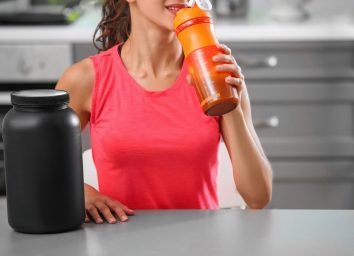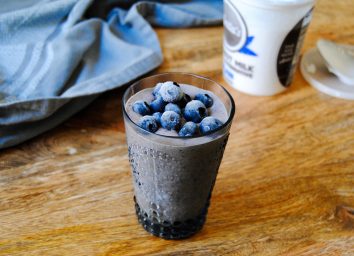Surprising Side Effects of Drinking Meal Replacement Shakes, Say Dietitians
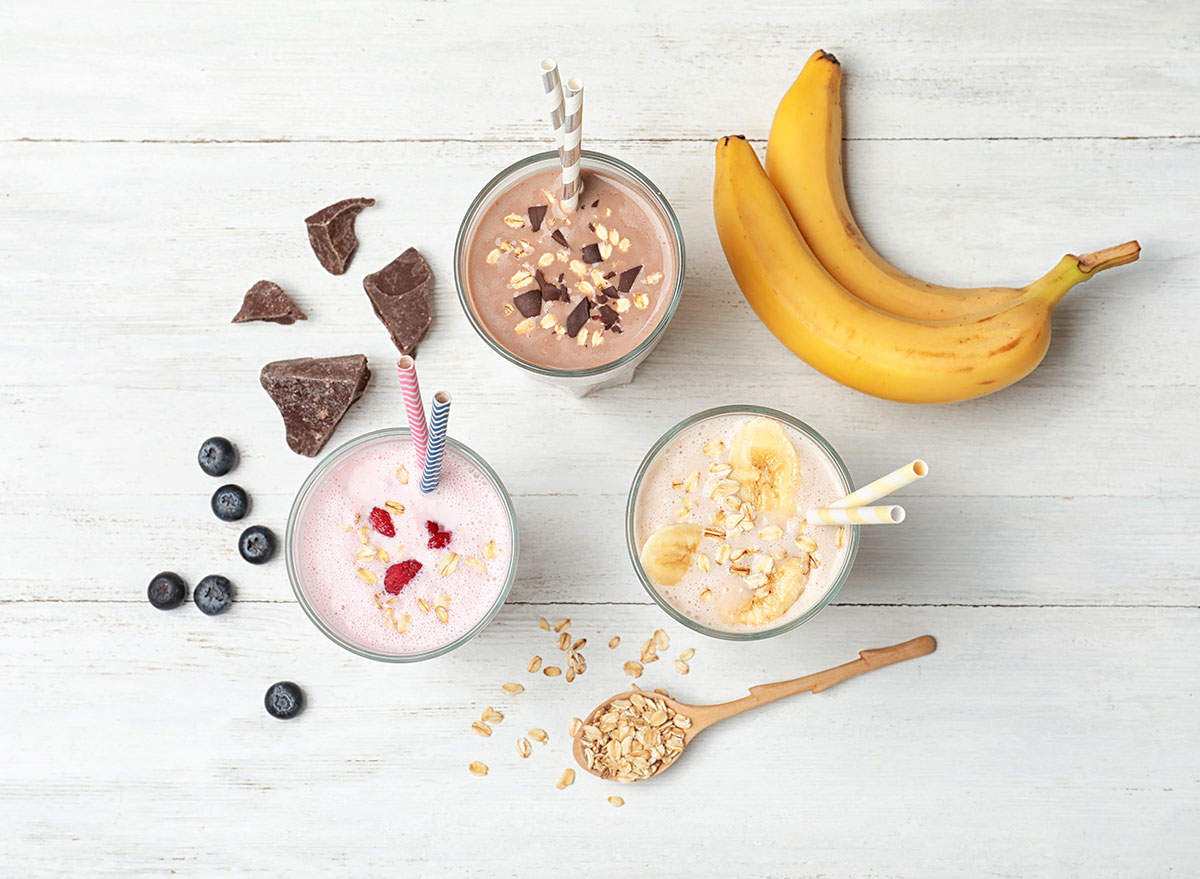
If you’re the kind of person who doesn’t have time to make a healthy breakfast, you probably love meal replacement shakes. Too busy at work to take a break for a sit-down lunch? Make it a liquid lunch. Meal replacements are totally convenient. They’re quick and simple to make. Heck, you don’t even have to dirty a blender if you buy the bottled kind. They’re easy nutrition. No chewing required.
If you’re trying to lose weight, they may make sense, too. Many shakes contain fewer calories than the solid meals they replace. If you’re concerned that you’re not getting all the nutrients you should be, they may ensure that you’re getting the essentials that your regular diet might not provide.
With so much upside, what’s not to love about meal replacement shakes? The potential negative side effects, that’s what. Read on, and for more on how to eat healthy, don’t miss 15 Underrated Weight Loss Tips That Actually Work.
You don’t need them.
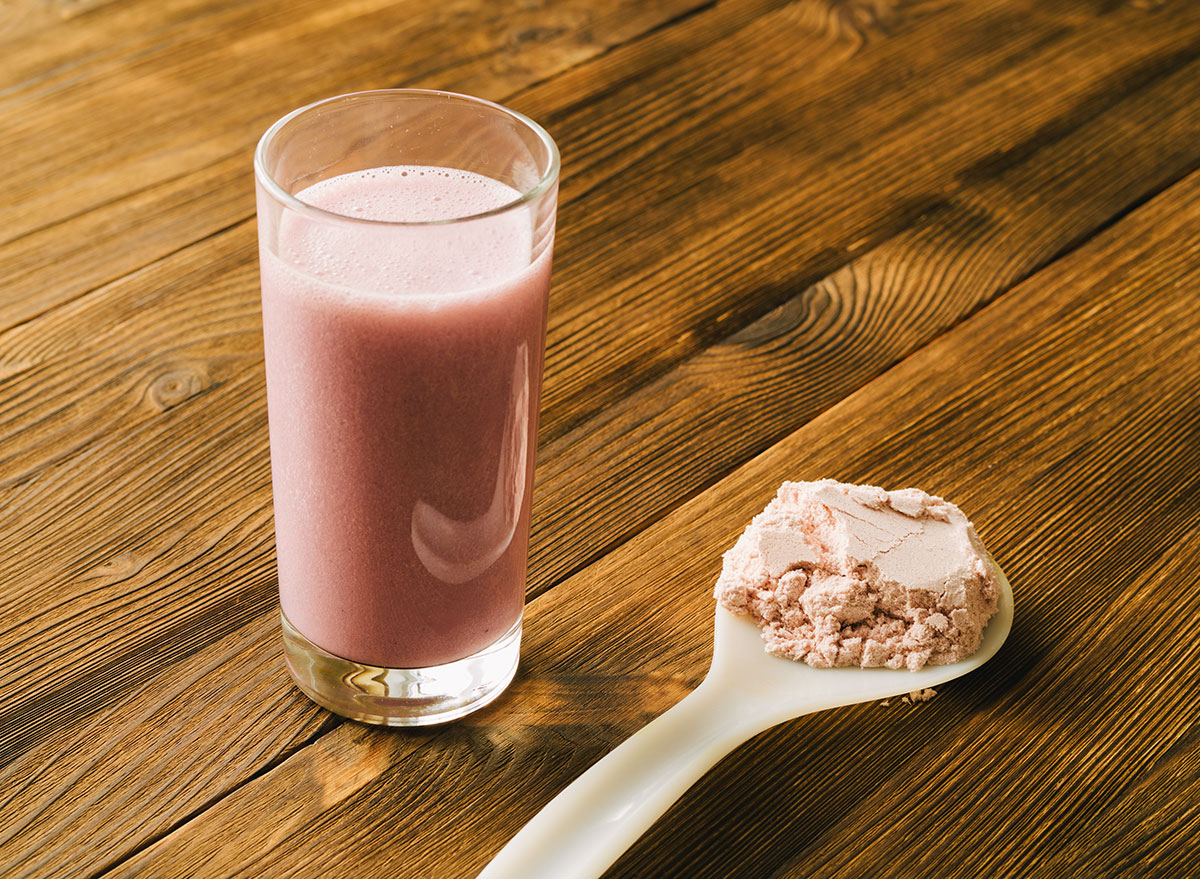
Liquid meal replacements are certainly healthier than an order of deep-fried chicken wings but they’re not necessarily any healthier than a healthy solid food meal they may replace. “I wouldn’t be a dietitian if I did not point out that you can obtain all the nutrients you need, both macronutrients and micronutrients, through solid food,” says Brittany Lubeck, RD, a registered dietitian and consultant for Oh So Spotless.
“Meal replacements should be used to cover any nutrient gaps in your diet that you are aware of,” she says.
You might miss out on fiber and more.
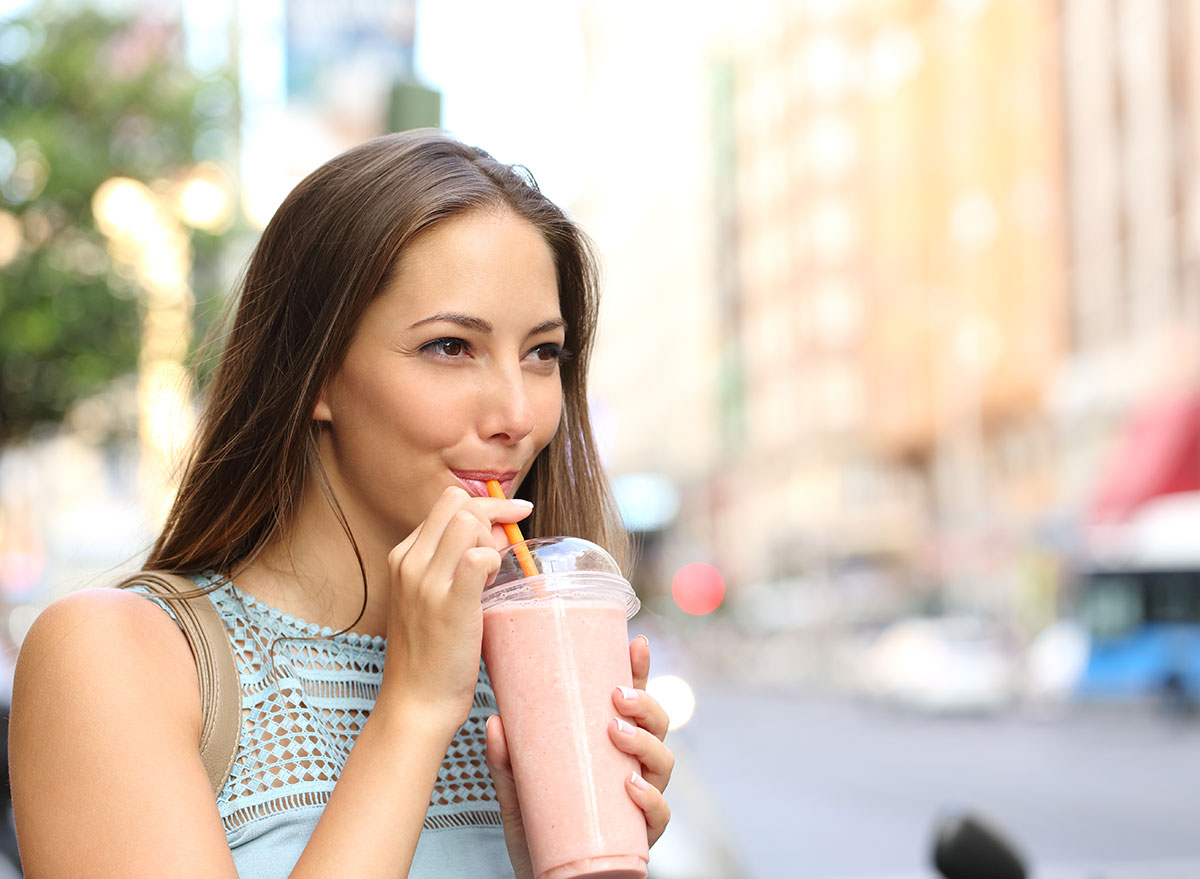
“Many liquid protein and meal replacement shakes lack adequate amounts of fiber, which is important for gut health, digestion, and heart health,” says Diana Gariglio-Clelland, RD, a nutritionist on staff for NextLuxury.com. “Unless your shake has fiber added to it, it’s probably lacking.” In addition, it may be lacking in other beneficial nutrients like antioxidants that you would get from eating whole foods.
You might end up putting on weight.
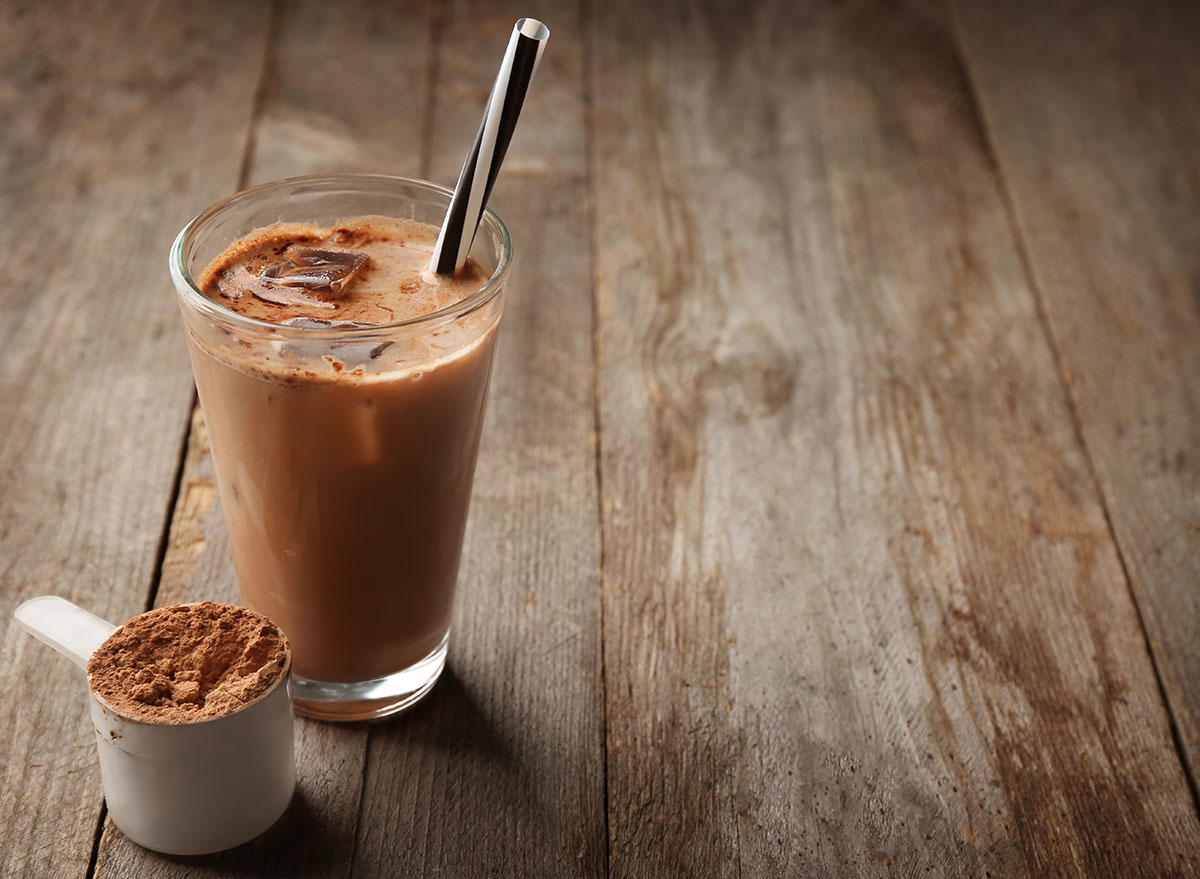
Another surprising side effect of meal replacements related to the one above is weight gain. “Since many are too low in calories, after drinking one you might still feel hungry and end up eating a more calorie-dense food,” says nutritionist Ana Reisdorf, MS, RD, a registered dietitian for Wellness Verge. “I would not recommend any that are less than 300 to 400 calories each. Meal replacement shakes are not a long-term solution for weight loss.”
You might be shorting yourself on beneficial phytochemicals.
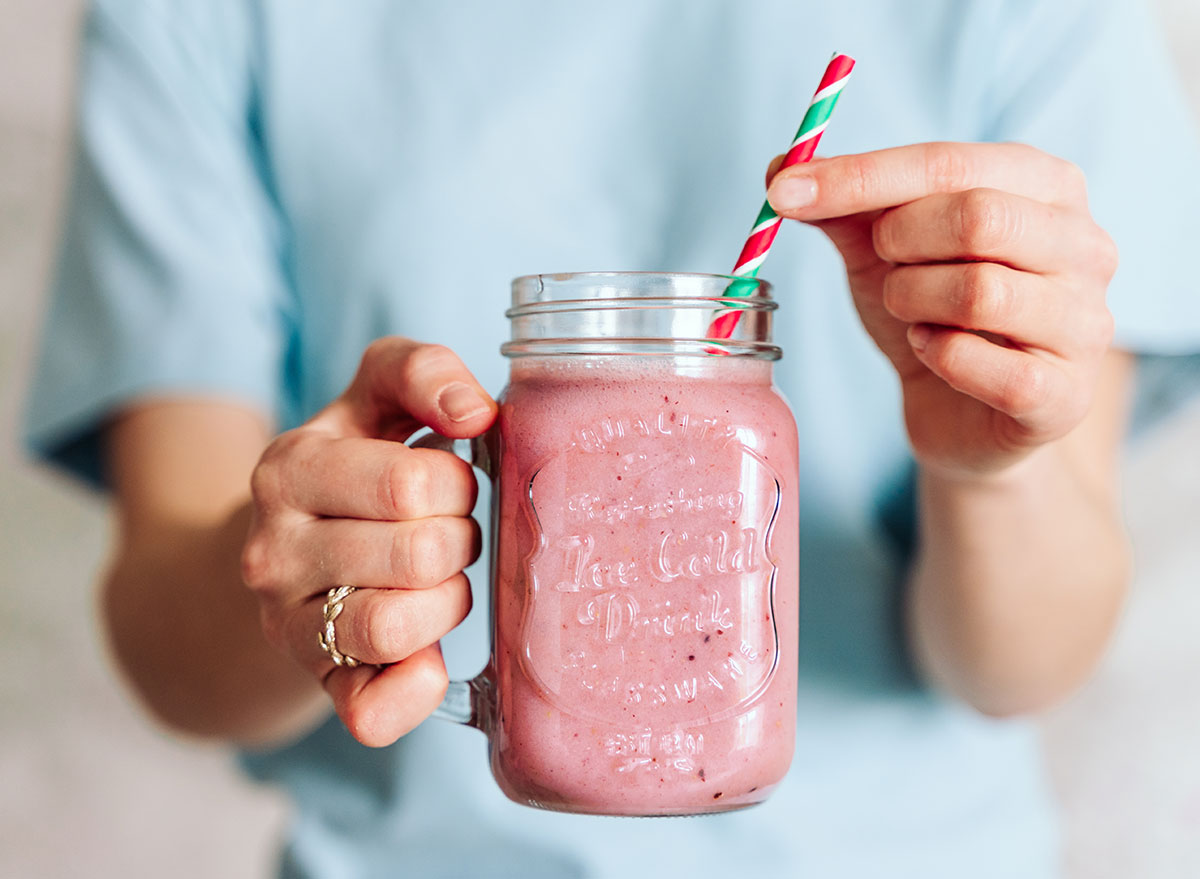
Plant-based foods like fruits and vegetables contain phytochemicals, which are compounds that give produce its color, as well as provide a slew of health benefits. “Meal replacement shakes are fortified with vitamins and minerals to help meet nutritional needs, but they won’t provide the same benefits as eating a variety of whole fruits and vegetables,” says Gariglio-Clelland. Some meal replacements take this fact into consideration and pump up the additives. “I like Invigor8’s SuperFood whey protein shake because it includes green veggies, essential fatty acids, adaptogens, probiotics, and digestive enzymes,” says nutritionist Reisdorf.
READ MORE: Surprising Side Effects of Not Eating Enough Vegetables, Says Science
You might get a stomachache or worse.
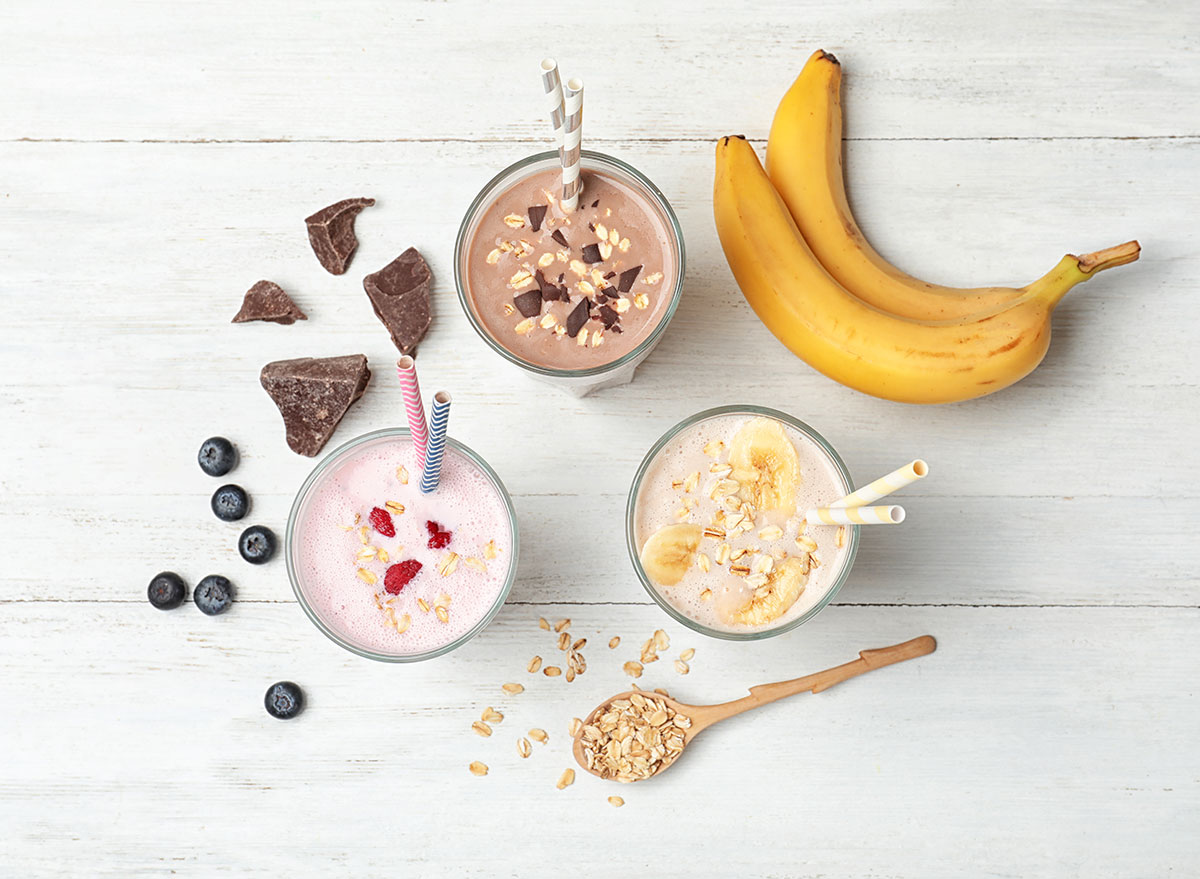
Be aware that there is no safety testing or rigorous Food and Drug Administration approval process for dietary supplements like there is for pharmaceuticals. And dietary supplements aren’t required to list potential adverse side effects on the packaging. As a result, you may have an adverse reaction to the chemical preservatives (sodium benzoate), thickeners (carrageenan, an inflammatory ingredient), or stabilizers (xanthan gum) in them.
“As a dietitian, I encourage people to opt for a protein powder or meal replacement that is third-party tested and does not contain unsafe ingredients or contaminants,” says Mary Wirtz, MS, RDN, CSSD, a nutritional consultant at Mom Loves Best. “To see if the protein powder you are taking is third-party tested, visit NSF International,” she suggests.
Meal replacement shakes still may be useful for weight loss or a quick and convenient meal, but if you’re now feeling a bit shaky about them and want to refocus on whole food nutrition, try these foods that Reduce Inflammation and Slow Aging.
Read this next:

